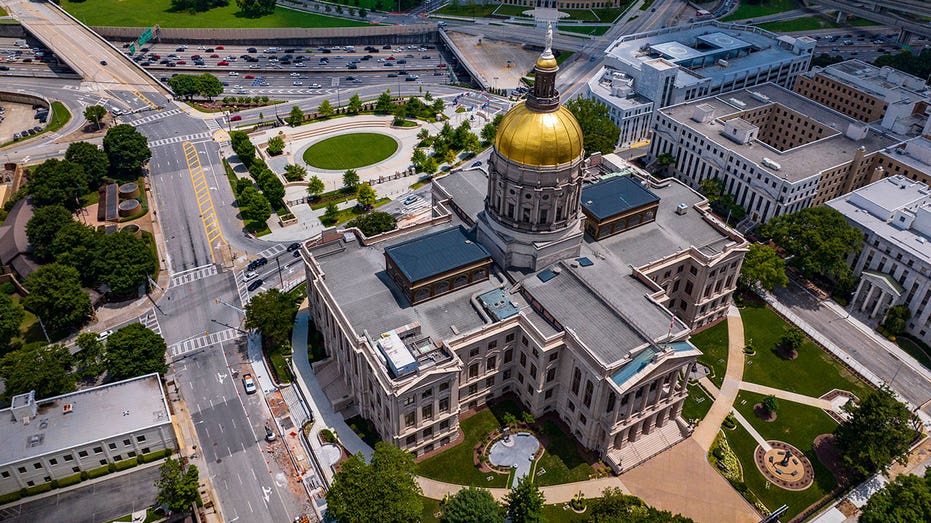Top Republicans in the Georgia House want to boost funding for its prekindergarten program by more than $100 million, raising teacher salaries, providing money for building classrooms and spending more on operations.
“We’ve got to continue to up our game,” House Speaker Pro Tem Jan Jones, a Milton Republican who led a study of Georgia’s prekindergarten program for 4-year-olds.
Republican House Speaker Jon Burns of Newington and Jones said Tuesday that they would seek to implement recommendations in the current legislative session, although Gov. Brian Kemp didn’t budget for most of them. Jones said leaders would ask Kemp to increase spending or they would seek money from elsewhere in the budget.
GEORGIA GOV. KEMP PROPOSES $11.3M TO OVERHAUL LITERACY EDUCATION
The governor’s office declined to comment.
It’s one of a series of proposals nationwide to boost spending on child care and early education, months after a pandemic-era federal boost in subsidies expired.
Georgia uses lottery money to offer preschool to any 4-year-old whose parents want it, funding classes for 84,000 children statewide. Enrollment has only partially recovered since the pandemic, to about 73,000 last year. But officials say it’s a struggle to hire teachers, in part because of low state-paid salaries.
“We have a lot of providers or even public schools that have the kids, they’re ready and willing, they want to enter our pre-K class and they can’t find a teacher,” said Early Care and Learning Commissioner Amy Jacobs, who oversees the program.
About 2,700 children are on waiting lists statewide, though Jones said she believes more children could be served. She said better funding would encourage more public school districts to offer classes while bolstering the sometimes-thin finances of private operators. Right now, half the classes statewide are provided by public districts and half are provided by private child care operators.
“We have too few offerings to serve the needs of all parents who want to avail themselves of public pre-K,” Jones said.
Kemp agreed to the group’s top recommendation, to cut class sizes from 22 back to 20, proposing almost $11 million for his budget beginning July 1. Class sizes would fall over four years, costing $43 million annually once complete.
But Jones and Burns are also calling for higher preschool teacher salaries. Jones said it’s important to increase the salary of assistant teachers from $20,190 now to $25,741, because an assistant teacher “would make more working full-time at Target.” They also propose boosting pay for lead teachers to match what the state pays for K-12 teachers. The combined salary increases would cost $31 million annually.
Jacobs said she believes many prekindergarten teachers are leaving for K-12. There, they get not only a higher state salary but typically a significant local supplement atop that.
When I talk to teachers, we definitely hear about teacher pay,” Jacobs said, “And the second issue we hear from teachers is we need reduced class size, we need to go back down to 20.”
MASSACHUSETTS GOV. HEALEY PUSHES CHILDCARE SPENDING UNDER NEW PROPOSAL
A report released by Jones also calls for increasing the startup grant for a new preschool classroom from $8,000 to $30,000 to pay for furniture and materials and for providing $15,000 per classroom once every five years to “refresh” materials. Jones also wants to provide transportation money for all pupils. Those operational boosts would cost about $15.5 million per year.
For the first time, House leaders also want to fund new classroom construction, letting public schools use an existing pool of state money and giving private providers money to lease spaces. The private lease money is estimated to cost $23 million a year.
Jones said she believes Georgia’s lottery generates enough to cover the expansion, without cutting other spending on college scholarships and prekindergarten. The lottery last year generated a $269 million surplus after spending $400 million on prekindergarten and $1 billion on college assistance. That surplus could narrow this year, after lawmakers agreed with Kemp’s plan to boost HOPE scholarships.
The lottery is legally required to maintain a $737 million reserve but currently has nearly $2.2 billion in the bank. That surplus hasn’t gotten as much attention as the $10.7 billion in spare cash Georgia has in its main bank account, but some Democrats have eyed the lottery’s extra cash as a way to offer need-based financial aid for college students.
























